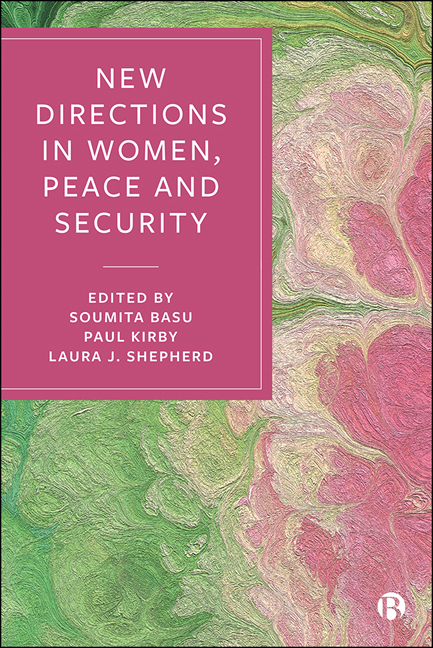3 - The Price of Peace? Frictional Encounters on Gender, Security and the ‘Economic Peace Paradigm’
Published online by Cambridge University Press: 12 March 2021
Summary
Efforts to lift women's economic participation have recently become a more pronounced aspect of international assistance for post-conflict restoration. This has occurred as part of a growing economic orientation in liberal peacebuilding practice, reflecting what some have called the ‘economic peace paradigm’. This paradigm for contemporary peacebuilding seeks to transform post-conflict economies to adopt a market orientation, assuming that more interdependent and cooperative trade and exchange relations between states and communities can temper the potential for hostile encounters. It is further argued that this approach increases economic growth within conflict-affected states and communities in ways that ensure that wealth is shared and the potential for marginalization and violence is diminished (Ydesen and Verschaeve, 2019, p 482).
Global discourse on the need to make women's economic participation a stronger focus of women, peace and security claim this will further enhance the dividends of the economic peace paradigm. For example, UN Women's 2015 global study on the implementation of UNSCR 1325 stated that the most successful cases of peaceful conflict transition occurred where women had achieved high levels of economic integration and were able to direct spending towards the needs of family and dependents and thus strengthen social cohesion (Coomaraswamy et al, 2015, p 171). A recent framing of this argument in a publication for the Georgetown Institute for Women Peace and Security went even further, contending that ‘women's economic empowerment strengthens women's rights and grants them increased control over their own lives, allows them to better provide for their families, and contributes to the advancement of their communities and societies’ (Hudock et al, 2016).
Curiously, these claims are rarely subjected to grounded scrutiny and often seem to be reproduced uncritically. In this chapter, I argue that it is important to question the apparent blind faith in women's capacities to generate peace and security in a ‘trickle-up’ fashion for themselves, their family and their broader communities because they are actively integrated within the cash economy, and ignore the rather more complex gendered realities that shape women's lives in postconflict contexts.
- Type
- Chapter
- Information
- New Directions in Women, Peace and Security , pp. 41 - 60Publisher: Bristol University PressPrint publication year: 2020



